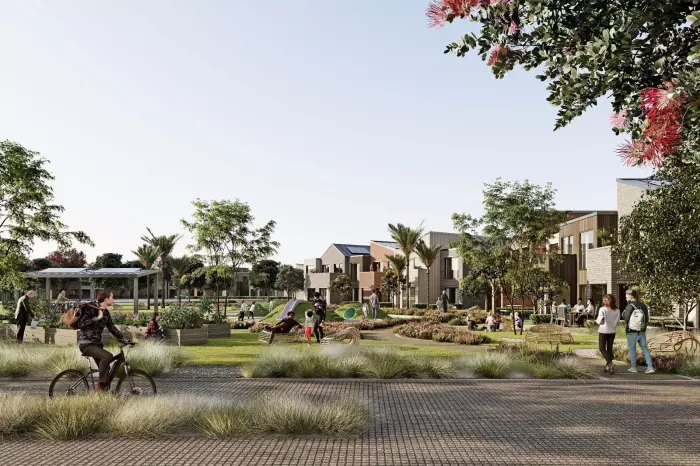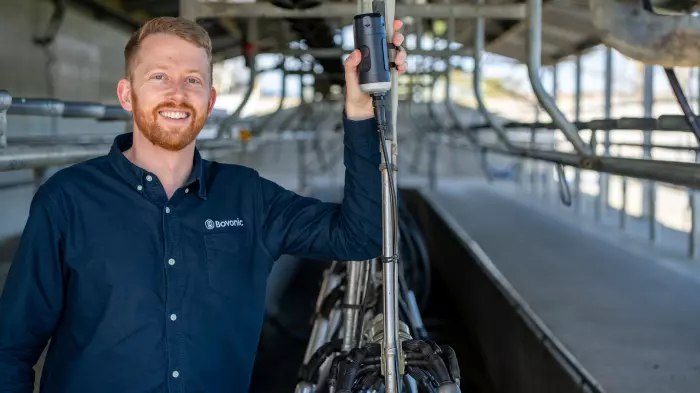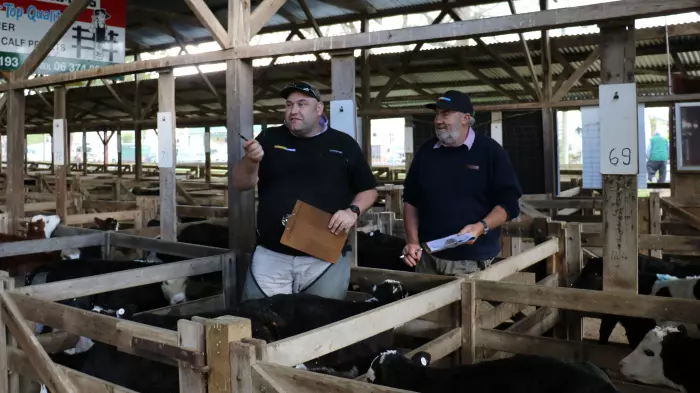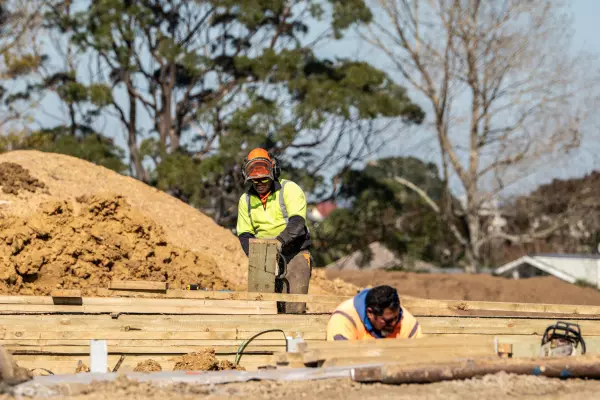Trans-Tasman residential and retirement village developer Winton Group wants to build a $10 billion, solar powered 5,000 home, car-free community in south Auckland.
The proposed 221-hectare development, Sunfield, is the first major residential application under the government’s fast-track consent process. It will include 4,400 homes alongside three retirement villages with an additional 600 independent living units and care beds.
The site covers an area between Takanini and Papakura, abutting Old Wairua Rd on its southern boundary.
Winton is a private developer with a portfolio of more than 9,000 residential lots and apartments in both NZ and Australia. Its recent developments including Northbrook at Wynyard Quarter, Northlake Apartments in Wanaka, and Ovation at Hobsonville Point. It also has several residential developments in Sydney and on the Tweed Coast.
Winton has applied for consent under the Urban Development Act (UDA) for the residential component of Sunfield as well as a four-hectare town centre, with schools, green links and recreation parks across 22.8 ha.
Each home will have solar panels, there will be no gas connections and the community will have 90% fewer cars, with only one vehicle allocated per every 10 households.
The UDA submission to Kāinga Ora, which will carry out the initial assessment of the project's feasibility, says transport will be provided via the village ‘sunbus’, a fleet of autonomous EV vehicles which will be used primarily to shuttle residents around the village and to the Papakura Station, two kilometres away.
It said the development could generate more than 11,000 jobs across four retail hubs throughout the community.
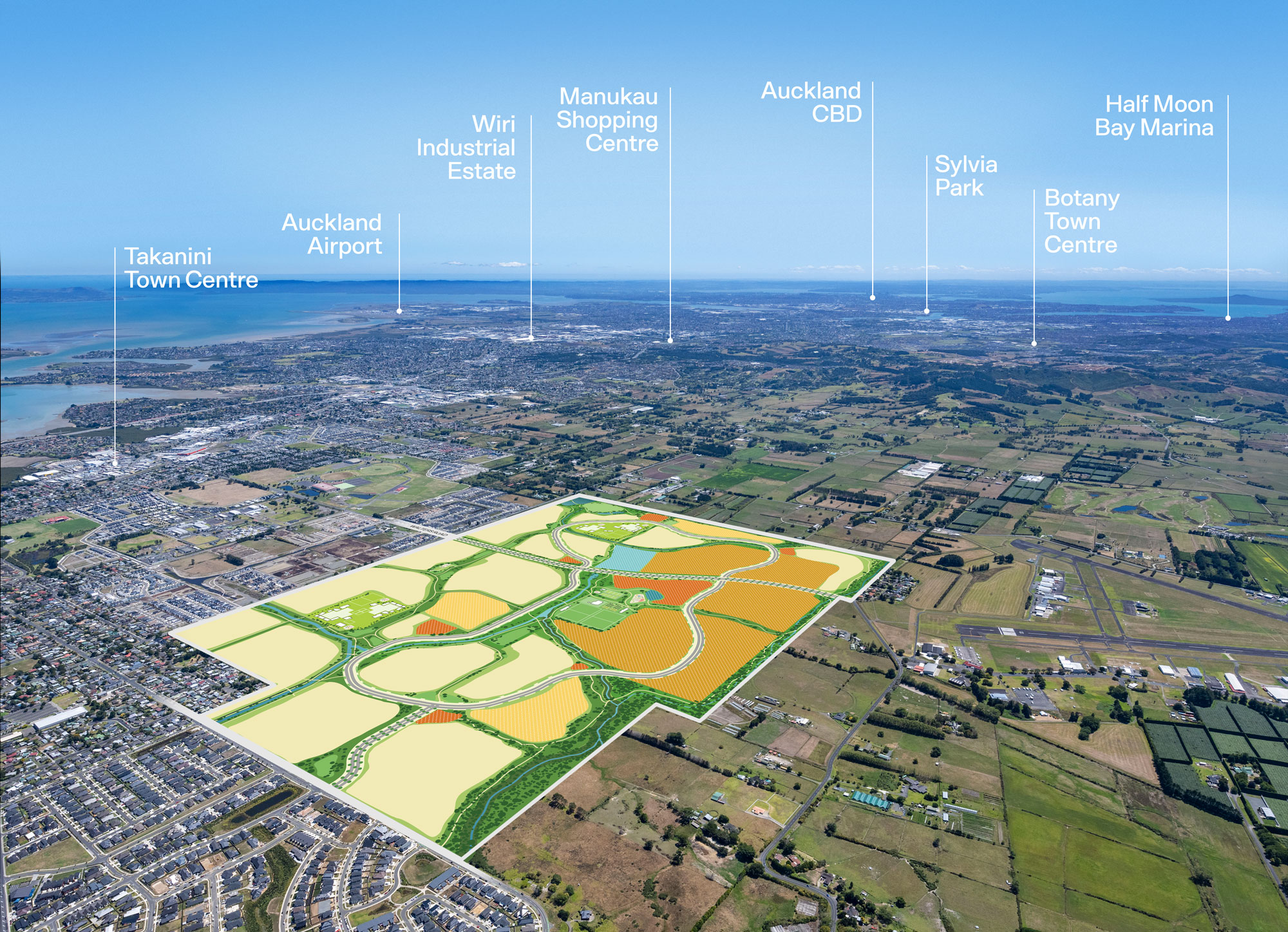 Sunny side up... the proposed Sunfield development (Image: Supplied)
Sunny side up... the proposed Sunfield development (Image: Supplied)Winton chief executive Chris Meehan said it is a long term project, taking between 10 to 15 years to construct.
He said the absence of roads, parking, driveways and garages, will also reduce costs, with homes roughly 20% cheaper than the average Auckland house price.
Less infrastructure will also allow the firm to sidestep much of Auckland Council’s development contribution charges, which are being ramped up six-fold next year to almost $85,000 per new home at nearby Drury.
Because Kāinga Ora is the consenting authority, it is its decision as to whether it consults with the Auckland Council.
Meehan said the central design premise of the community was based on a “15-minute” neighbourhood, with all the necessary needs of day-to-day life catered for within a quarter hour walk or cycle from home.
The firm will contract out the one-and-two level house builds to franchise builders, though they will be built to detailed plans, specifications and covenants including solar panels on each home.
The masterplan also includes 250,000 square metres of employment, healthcare and education space.
Meehan said he would expect the application to be processed within about three months, as it would be in Australia.
“Once we get consent we can start right away by constructing one neighbourhood at a time, alongside the neighbourhood amenities.”
“We do not have the luxury of time to meet New Zealand’s emission reduction targets to help limit the physical effects of climate change. We have to do things differently and the best way to lower New Zealand’s carbon impact is to avoid emissions wherever possible.”


